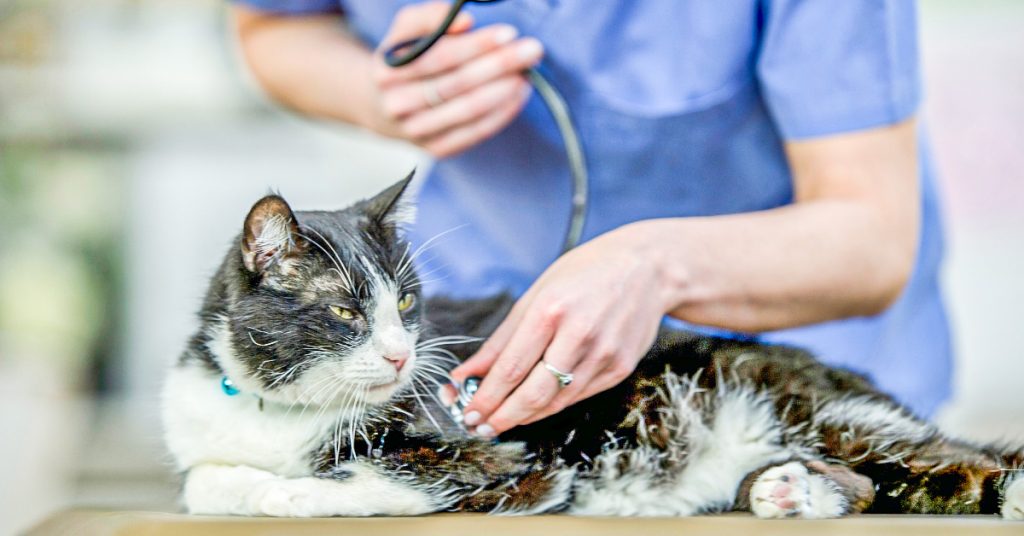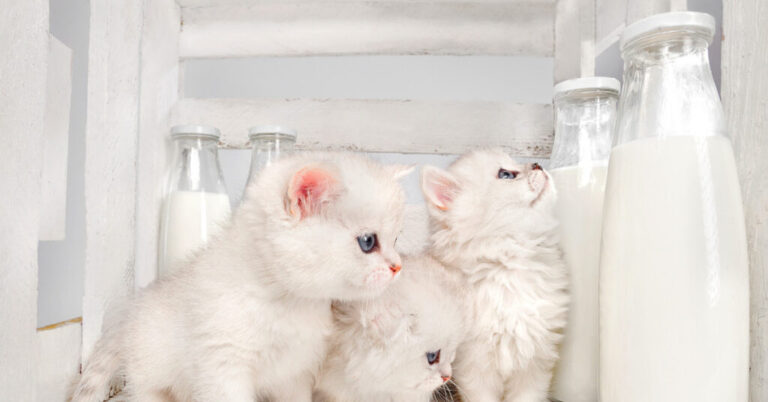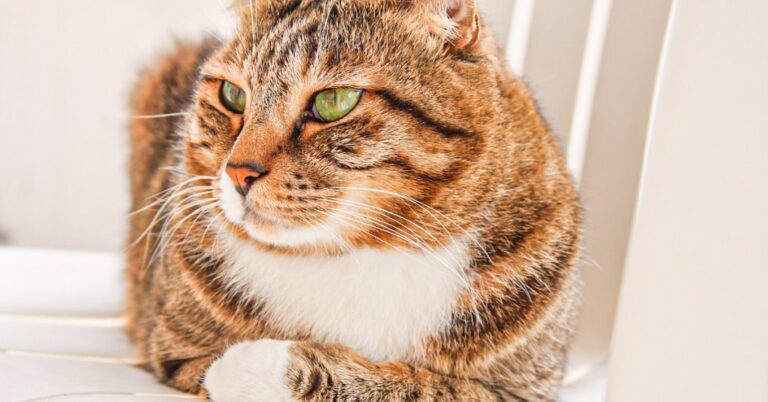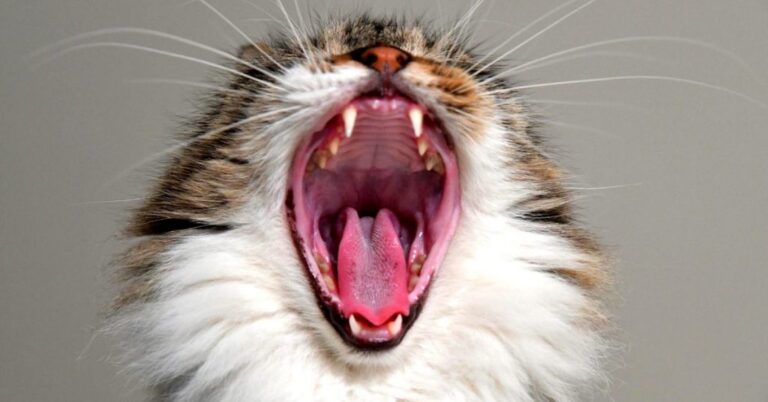Heart Murmur in Cats – Should You Worry?
Reviewed by Erica L. Tramuta-Drobnis, VMD, MPH, CPH
This may be surprising for you to hear, but a heart murmur in cats may be nothing to worry about.
However, that said, there are still many cases where it may suggest the presence of heart disease in your cat.
Also, a large percentage of cats may have underlying heart disease without a murmur.
Thus, just because there ISN’T one doesn’t mean your cat can’t have heart disease.
This is why your cat needs routine (annual or semi-annual) veterinary visits.
Your vet needs to regularly listen to your pet and ensure your cat maintains a proper body weight and isn’t showing any signs that could suggest heart disease.
A veterinary cardiologist will be able to listen to your cat’s heart and determine the best course of action to take.
What is a Heart Murmur?

Heart murmurs in cats occurs when there is a disturbance in the normal blood flow through the heart.
Regardless of the type of murmur, a heart murmur in a cat could lead to congestive heart failure or sudden death if left unaddressed.
There are, however, many times when the murmur will be deemed benign, meaning nothing to worry about.
In many heart murmur situations, your cat can expect a long and happy life without any ill effects.
Sometimes they may require medications or just routine follow-up.
What Causes a Heart Murmur?
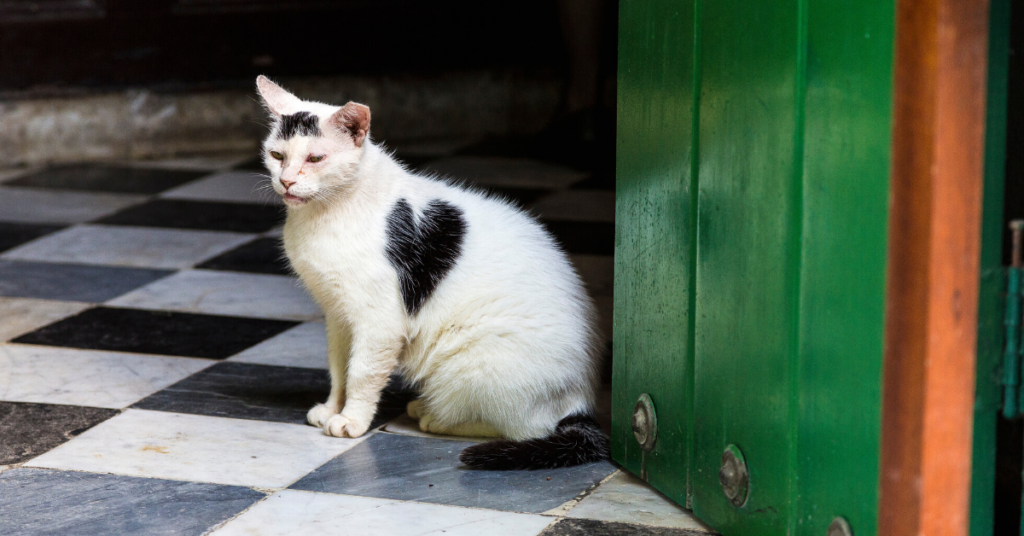
Murmurs and abnormal blood flow (or turbulent flow) could be either:
- Physiologic – A murmur that occurs because of stress or other factors but has no adverse effects.
- Pathologic – A murmur that will cause disease and possibly clinical signs.
Pathologic murmurs can be either:
- Congenital – These murmurs occur when a cat is born with a defect in the heart. They usually can be heard at a young age and at all times.
- Acquired – These murmurs are due to structural heart disease that develops over time. We may hear these murmurs all the time or intermittently (Calnon et al., 2015).
Hypertrophic Cardiomyopathy, an acquired disease, occurs when the heart muscle becomes thickened.
This is the most common type of heart disease associated with murmurs in cats.
This disease decreases how efficiently the heart functions and can be a serious cause for concern.
Additionally, high blood pressure, anemia, or even an enlarged thyroid can contribute to structural heart disease development.
Obesity can further increase the risk of developing and complications from heart disease and lead to an earlier onset of signs.
What To Do If Your Cat is Diagnosed With a Murmur
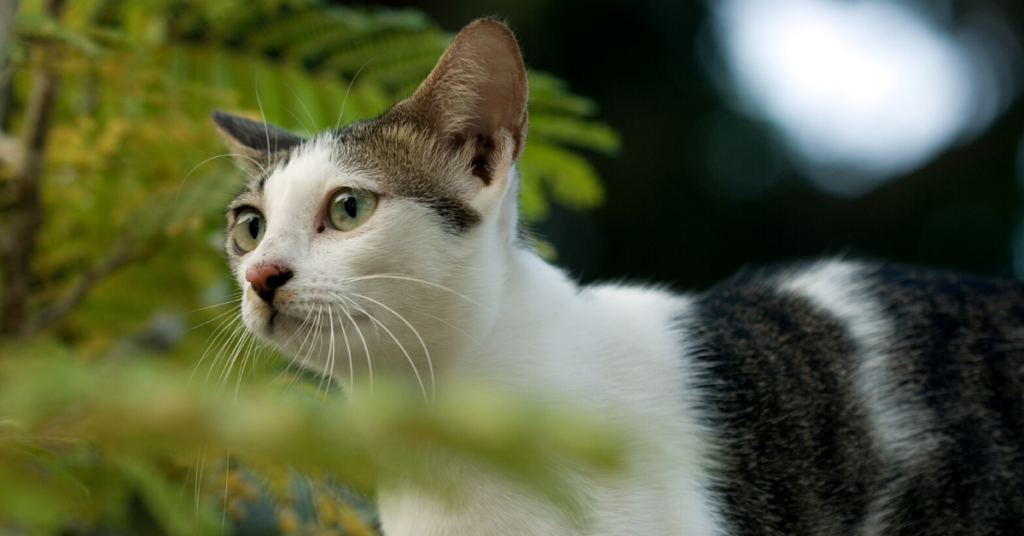
During routine veterinary exams, your vet will use a stethoscope to listen to your cat for any abnormalities, including assessing the heart rate and pulse and listening to the lungs.
Your vet will also ask you if your pet shows clinical signs such as poor appetite, pale gums, weight loss, weakness, and more subtle changes, which will further shape recommendations.
What Will Your Vet Recommend Upon Hearing a Murmur?
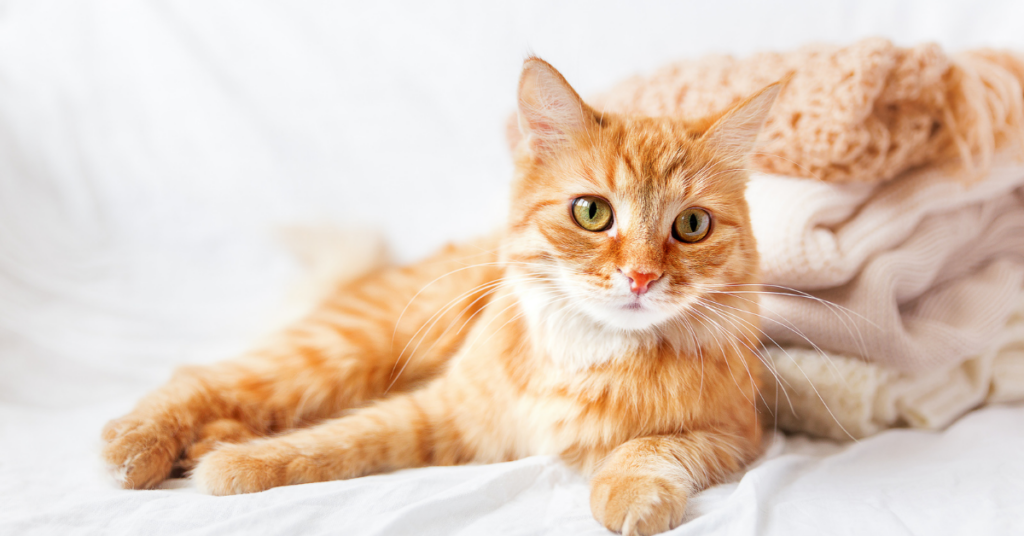
Radiographs are recommended to evaluate the heart’s overall size and shape.
They look at the lungs for signs of congestive heart failure, enlarged vessels, and more.
The gold standard diagnostic test to evaluate the muscles’ size, look at the individual valves in the heart, and check for increased blood pressure in the lungs is an echocardiogram (an ultrasound of the heart).
Additionally, your veterinarian may recommend blood tests depending on the pet’s age to evaluate for thyroid and other underlying diseases.
The severity of the murmur, findings on radiographs, echocardiogram, and any clinical signs your pet has guides your vet’s recommendations.
Treatment may include no treatment, simply rechecking every 6 – 12 months by physical exam and or repeat echo.
Or it may also involve routine medication administration, surgery, or a diet change to achieve weight loss.
Prognosis
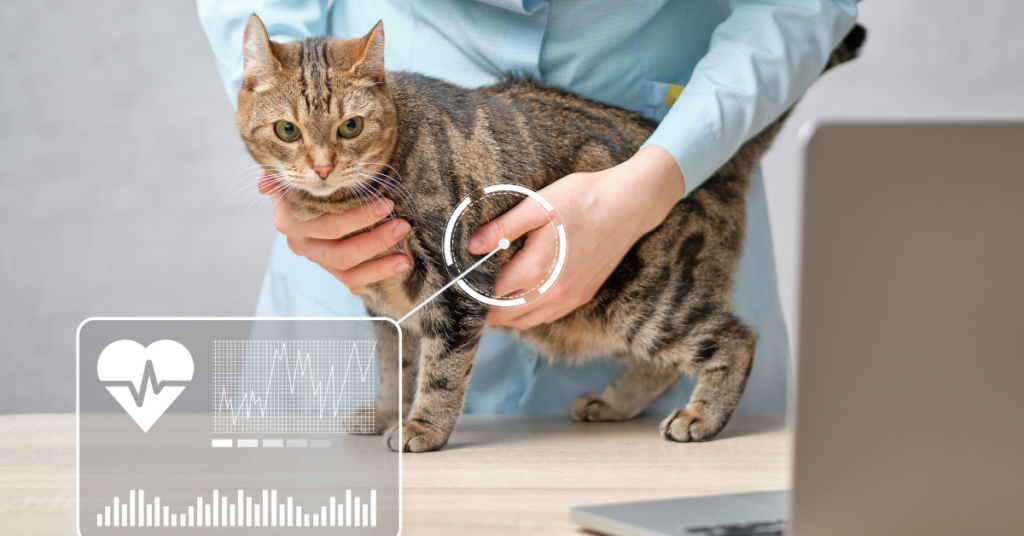
The prognosis for this condition varies from very good to life-threatening.
If your cat is still a kitten, then the chances are that s/he may grow out of a murmur just fine.
And since every cat is an individual, and each disease can vary, your veterinary healthcare provider will suggest a personal plan for your cat.

